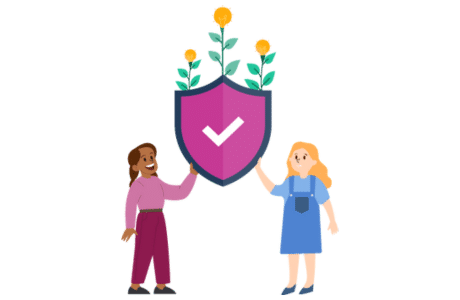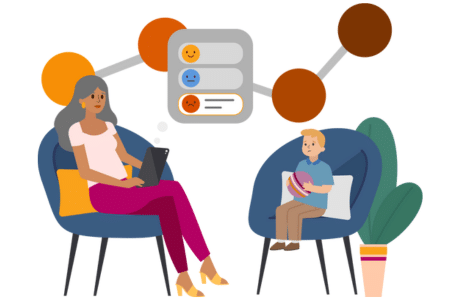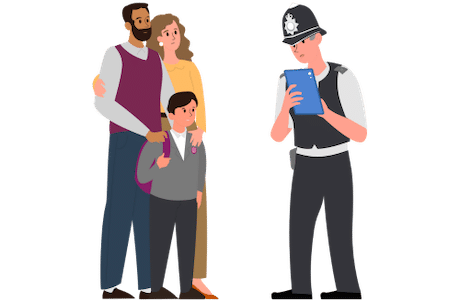Guest Author: Dr. Amy Grosso
Every child deserves to thrive, not just academically, but emotionally and mentally too. With the rising concerns surrounding children’s mental health, the annual Children’s Mental Health Week has become an important time to highlight young people’s wellbeing. Launched in 2015 by Place2Be, this week “aims to empower children and young people with resources, awareness and the confidence to tackle mental health challenges”.
This year’s Children’s Mental Health Week takes place from 3rd to 9th February with the theme “Know yourself, grow yourself.” This theme encourages self-awareness and reflection, urging children to explore who they are and upskill their emotional toolkit. The initiative is supported by Here4You and The Walt Disney Company, and features characters from the film Inside Out 2.
Why Does Children’s Mental Health Week Matter?
- A critical moment in mental health: The number of children with mental health conditions has risen significantly, from 1 in 8 (12.5%) in 2017 to 1 in 5 (20.3%) by 2023, according to the Children’s Commissioner’s Office (2022-23).
- Key contributing factors: Long-term effects of the COVID-19 pandemic and concerns about the cost of living are cited as major contributors.
- Top reasons for seeking help:
- Anxiety is the most common reason children seek support.
- Mental health crises are the second most common reason.
- Declining happiness: The Good Childhood Report (2024) highlights a decline in happiness among children aged 10-15 since 2010.
- Impact of financial worries: 41% of young people reported being ‘quite’ or ‘very’ worried about rising costs, reflecting the emotional impact of parental financial concerns.
These statistics make one thing clear: mental health is no longer an issue at the margins. It’s a pressing concern and Children’s Mental Health Week is the perfect opportunity to raise awareness and support for young people.
What Schools Can Do
- Raise Awareness OR Download Resources: For Children’s Mental Health Week, Download Place2Be’s Mental Health Resource Pack for Schools, filled with activities and tools to raise awareness among students and staff. These resources make it easier for schools to facilitate conversations, encourage self-awareness and teach coping mechanisms in a meaningful, age-appropriate way.
- Creating a Safe Space to Learn: In addition to focusing on Children’s Mental Health Week, schools can continue to have a positive impact on student mental health, every day. Beyond academics, they are environments where mental wellbeing can be fostered, nurtured and protected. Student voice (listening to children’s concerns and understanding the factors impacting their mental health) is critical in creating safe spaces.
- Recognising Subtle Signs of Struggle: When students are struggling with their mental wellbeing it often starts in very subtle ways. Educators are in an ideal place to notice these small changes in students. It might be a shift in mood or behaviour. It could be the educator just senses something is different. Actively listening to pupils and recognising these changes can be crucial in identifying when a child needs further support.
The Role of Technology in Supporting Children’s Mental Health
Technology can play an important role in safeguarding children’s mental health as identifying and responding quickly to support children in crisis is essential. Modern tools are empowering schools and other settings to track a wide range of concerns, analyse patterns and intervene promptly.
CPOMS StudentSafe provides fully customisable categories of concern which can encompass a wide range of wellbeing, mental health and low mood issues, from anxiety to unexplained absences. StudentSafe facilitates faster decision making and ensures that children at risk do not fall between the cracks, with fast and collaborative information sharing allowing DSLs and mental health leads to gather a full chronology of events and identify any patterns that indicate a serious concern.
With CPOMS Engage, safeguarding, child protection, pastoral and welfare information can be securely shared between the local authority, school and other settings via a CPOMS Share Contract, enabling more effective collaboration and sharing of sensitive pupil chronologies. By enabling fast and secure information sharing between settings and agencies, all concerns which may indicate a safeguarding issue can be captured and addressed collaboratively.
Moving Forward with “Know Yourself, Grow Yourself”
Children’s Mental Health Week 2025 is more than just a weeklong event – it’s a call to action for schools, caregivers and communities to prioritise mental health as an essential part of every child’s growth. By fostering self-awareness, building resources and leveraging technology, we can ensure that young people can face and overcome today’s challenges.
Together, with tools like StudentSafe and Engage, dedicated educators and community partnerships, we can create a world where every child has the opportunity to “know themselves” and “grow themselves” for a brighter, healthier future.
To find out more about how CPOMS software solutions can support the wellbeing and mental health of students, book a free demo today.




